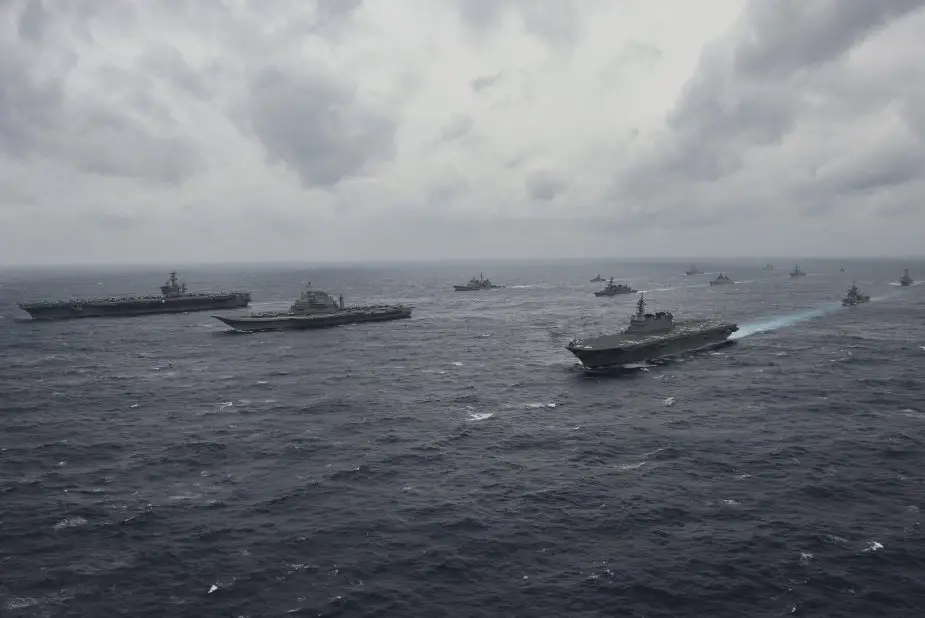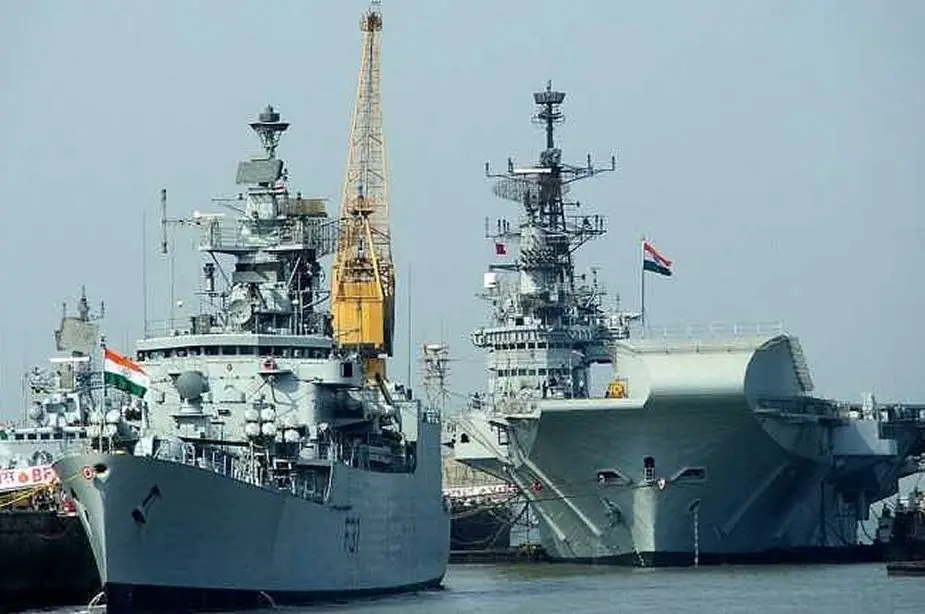Breaking news
India invites Australia to join Malabar naval exercise along with US & Japan.
India is planning to invite Australia to join its annual Malabar naval exercise as it seeks to strengthen tighten military cooperation with other Asia-Pacific countries amid rising tensions with China.
Follow Navy Recognition on Google News at this link
 Ships of the United States, India and Japan in the Bay of Bengal. (Picture source: U.S. Navy)
Ships of the United States, India and Japan in the Bay of Bengal. (Picture source: U.S. Navy)
The stage is set for Australia to be part of the next Malabar naval exercise. The exercise will bring together the navies of India, Japan, Australia and the U.S. in the Bay of Bengal at the end of the year, according to senior Indian officials who asked not to be identified, citing rules.
Diplomatic sources said the move would be a logical next step after the virtual summit between the two countries, where they signed the crucial Mutual Logistics Support Agreement (MLSA) for reciprocal access to bases, medical and training facilities, spares and fuel.
 Representational image of Indian Navy ships. (Picture source: Wiki Commons)
Representational image of Indian Navy ships. (Picture source: Wiki Commons)
Exercise Malabar is a trilateral naval exercise involving the United States, Japan and India as permanent partners. Originally begun in 1992 as a bilateral exercise between India and the United States, Japan became a permanent partner in 2015.[1] Past non-permanent participants are Australia and Singapore. The annual Malabar series began in 1992 and includes diverse activities, ranging from fighter combat operations from aircraft carriers through Maritime Interdiction Operations Exercises.
According to a diplomat from one of the participating countries, the Malabar exercise may not take place this year owing to the coronavirus pandemic, coupled with other factors such as the US presidential elections in November and stepping down of Japanese Prime Minister Shinzo Abe even as his successor is yet to be announced.




























